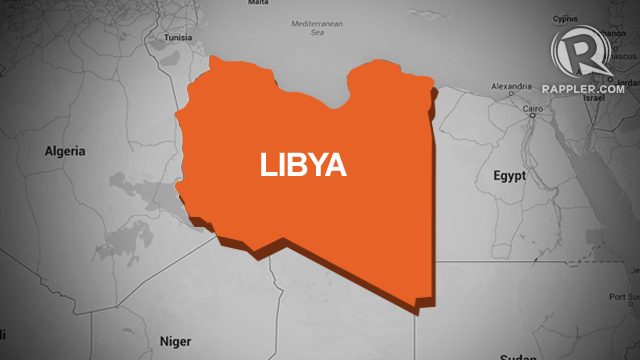SUMMARY
This is AI generated summarization, which may have errors. For context, always refer to the full article.

TRIPOLI, Libya – A revamped Libyan unity government will be proposed within 10 days, an official said Tuesday, January 26, after the internationally recognized parliament rejected an initial lineup in a major setback to peace efforts.
World powers have urged Libya’s warring factions to endorse the unity government formed last week under a UN-brokered deal aimed at ending political paralysis that has fuelled the rise of jihadists.
On Tuesday, European sources said the 28-member European Union was considering sanctions against those seen as “spoiling” efforts to forge a unity government.
An asset freeze and a travel ban could be imposed on leaders of the heads of the Tripoli-based parliament and government as well as on Aguila Saleh, who heads the internationally recognized legislature.
That parliament, based in eastern Libya, on Monday, January 25, voted against supporting the proposed 32-minister cabinet headed by businessman Fayez al-Sarraj.
Sarraj will present a new “more restrained” unity government for approval by the recognized parliament, said Fathi Ben-Issa, adviser to the unity government.
“We will respect the deadline of 10 days,” he added.
Lawmakers criticized the government as too large and also objected to an article in the UN-brokered accord giving the cabinet the power to approve top security and military positions.
Shrinking the cabinet complicates the task of accommodating the demands of the country’s multiple political groups and militias.
Several countries, including the United States and European nations such as Italy and France, are ready to provide military aid to help fight jihadists but want to see a unity government established first.
Libya, which is awash with weapons following the toppling and death of dictator Moammar Gaddafi in 2011, is now home to two rival parliaments as well as armed groups fighting to control its oil wealth.
Less than half of the members of the two legislatures signed up to the UN-sponsored agreement last month.
Controversial army chief
Parliamentarian Fahmy Tuwaty said many lawmakers oppose the deal because of the article on approving top security and military positions which they fear will lead to army chief Khalifa Haftar losing his post.
“The committee tasked with representing parliament in the UN-sponsored talks will be dissolved and a new team will be appointed on Monday to negotiate the removal” of the clause, said lawmaker Saltana al-Mismari.
Haftar launched an offensive against Islamists in eastern Libya in May 2014, prompting the then-government to accuse him of trying to stage a coup.
But after Islamists seized Tripoli soon afterwards, forcing parliament to flee to the country’s far east, the internationally recognized authorities gradually allied themselves with a figure previously seen as a rogue general.
He was named head of the Libyan army loyal to the recognized parliament in March 2015.
The sidelining of Haftar is one of the conditions set by the Tripoli-based General National Congress.
UN envoy Martin Kobler said on Monday that he would pursue “consultations with all parties to find a consensual solution” to the contested article.
He urged the recognized parliament “to take the necessary decisions as soon as possible”.
The Islamic State (ISIS) jihadist group has exploited the turmoil in Libya to expand its influence in the country and attack key oil facilities.
The group first appeared in the North African nation in 2014 and has since claimed responsibility for beheadings and suicide bombings.
ISIS has established a stronghold in the coastal city of Sirte, Gaddafi’s hometown, and is reported to have at least 3,000 fighters in Libya.
The EU fears ISIS could use Libya as a springboard to attack Europe.
“There should be a political agreement in the next few days,” a European source told Agence France-Presse about EU plans to sanctions several Libyan leaders for undermining efforts to form a unity government.
The source, who declined to be named, said the aim is to “target the spoilers, those who undermine efforts to establish a national unity government which is essential to stabilizing Libya and giving the EU someone it can talk to about security issues, especially combatting Daesh (ISIS).” – Mohamad Ali Harissi, AFP / Rappler.com
Add a comment
How does this make you feel?
There are no comments yet. Add your comment to start the conversation.